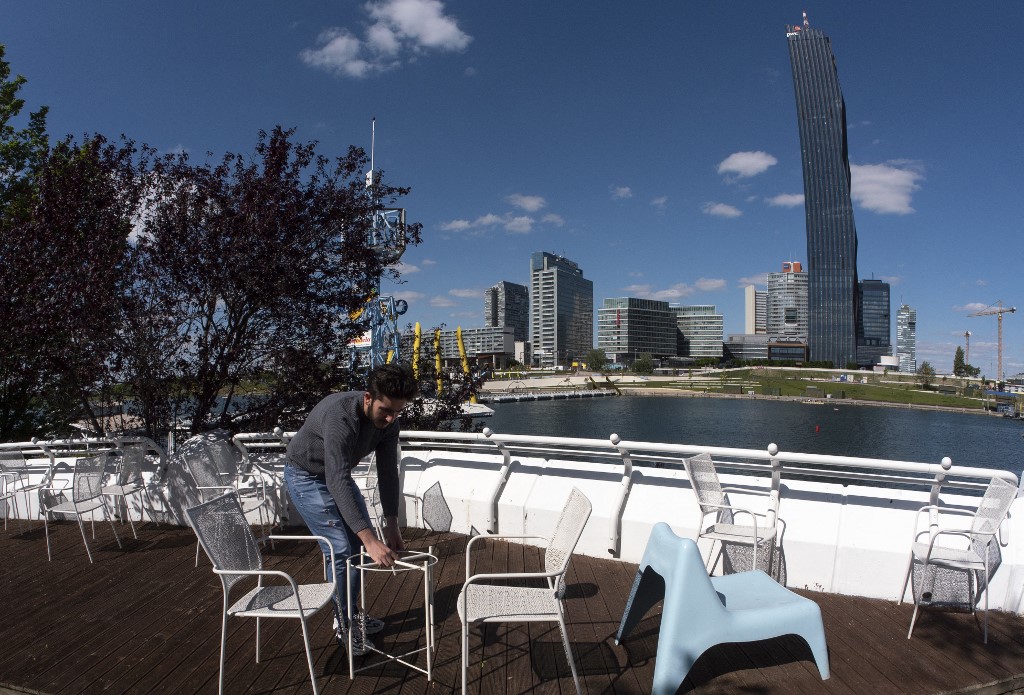In Austria, even non-EU students can generally expect to pay tuition in the hundreds – rather than several thousands – of euros per year. The education is high quality and some programmes are even offered in English, especially at the graduate level. Furthermore, Vienna in particular is consistently ranked in many surveys as among the best cities globally to be a student.
But what about the element of Austrian life that scares even the most wide-eyed, optimistic would-be Austrian residents? That’s right, we’re talking about the bureaucracy.
What qualifies as studying? Can I work on a student visa and if so, are there restrictions? What else should I know? These questions commonly come up when studying anywhere and Austria is no exception.
Who needs a student visa vs. another type of visa?
Non-EU students in Austria generally apply for a temporary residence permit specifically for students if they’re taking a course lasting longer than six months. If that’s the case, you might first have to apply for a student visa to enter the country from an Austrian embassy or consulate abroad. That lets you enter the country for between three and six months to start your courses.
After that, if you’re staying for longer than six months, you’re going to need a residence permit for students. You can get this at your local registration office or Austrian mission abroad.
Both these processes are for people who are getting their education at a public or accredited private university, a polytechnic institute, a public or accredited teacher’s college or are on a university course that has at least 40 ECTS credits.

Photo by Agus Dietrich on Unsplash
Students who have graduated from their studies but still need to complete job training for a regulated profession can also apply for – or apply to extend – their student residence permit.
When applying for the visa or permit, you’ll typically need to show proof of enrolment and of having paid your tuition fee. When applying to extend your student residence permit, you’ll typically need to prove that you’ve made progress towards your desired educational qualification.
You’re likely to also be asked to prove sufficient finances covering just over €550 a month if you’re under 24, or about €1,000 if you’re over 24. You’ll also need a travel insurance policy with at least €30,000 of coverage and health insurance – even if that insurance is just to get you to where you are eligible for health insurance as a student in Austria. You’ll obviously also need your application forms, passport photos and travel documents that are valid for at least three months after entering Austria.
The one type of student generally not covered under the Austria student visa or student residence permit is the language student. People attending German language schools in Austria generally need to apply for a different visa, which lasts for up to six months.
You can check out more on that visa in our dedicated article.
READ ALSO: How do I get a language study visa for Austria?
Can I work as a student in Austria?
Yes. But there is a time limit of around 20 hours a week that you can work while in Austria on a student residence permit. You don’t need a labour market test for this, but your employer will have to apply for the necessary permit for you.

The time limit essentially ensures you have enough time to devote to your studies – your primary reason for being in Austria in the first place. As such, internships and placements that you do as an explicit part of your university course aren’t considered as counting to your weekly limit.
READ ALSO: How do I stay in Austria after graduating from an Austrian university?
What happens after I graduate?
After you graduate from your programme in Austria, you can renew your residence permit for a full year to stay in the country and look for work. Graduates in Austria also have a much easier time qualifying for a work permit than many other classes of skilled workers.
For more information on how that works, you can check out our dedicated article on the subject.



 Please whitelist us to continue reading.
Please whitelist us to continue reading.
Member comments